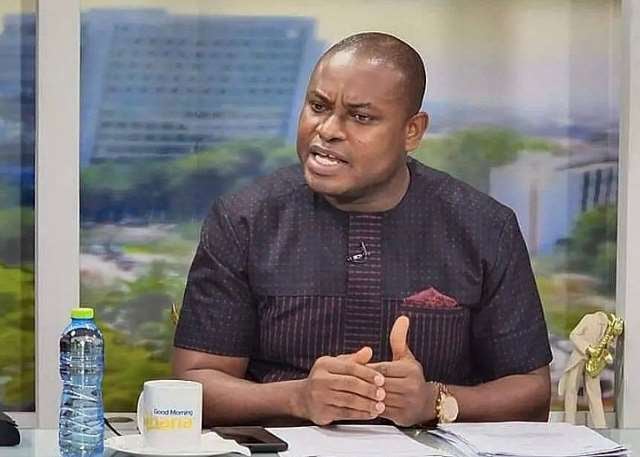Richard Ahiagbah, the National Communications Director of the New Patriotic Party (NPP), has launched a scathing attack on the John Mahama-led administration, accusing it of tacitly supporting and even legitimizing illegal mining activities, commonly known as “galamsey,” in Ghana. Ahiagbah’s core argument centers around the allegation that the government benefits financially from the illicit trade in gold extracted through these illegal operations, using it to bolster the nation’s gold export figures. This alleged dependence on galamsey proceeds, according to Ahiagbah, explains the government’s perceived reluctance to implement decisive measures, such as declaring a state of emergency, to effectively combat the environmental destruction caused by illegal mining.
Ahiagbah’s accusations paint a picture of a government entangled in a conflict of interest. He posits that the financial gains derived from galamsey gold create a disincentive for the Mahama administration to genuinely tackle the problem. This purported reliance on illegal mining revenue, he argues, effectively legitimizes the practice, undermining any efforts to curb its devastating impact on the environment and local communities. The NPP spokesperson contends that the government’s actions, or lack thereof, speak louder than words, suggesting that the fight against galamsey is not a genuine priority.
The call for a state of emergency to address the escalating galamsey crisis has become a contentious issue, dividing public opinion and sparking debate among stakeholders. While some advocate for this drastic measure as a necessary step to curb the environmental destruction, others, including President Mahama, express reservations. President Mahama’s stance, articulated during a media encounter, positions the declaration of a state of emergency as a last resort, to be considered only after all other available options have been exhausted. This cautious approach reflects the complex considerations surrounding such a declaration, including its potential impact on livelihoods and the socio-economic fabric of affected communities.
Ahiagbah’s critique of the government’s approach to galamsey hinges on the assertion that the financial incentives linked to illegal gold exports outweigh the commitment to environmental protection. He argues that the government’s inaction, particularly its reluctance to declare a state of emergency, is evidence of this prioritization of economic gains over environmental sustainability. This perspective portrays the government as complicit in the ongoing environmental degradation, choosing short-term economic benefits over the long-term health and well-being of the nation. Ahiagbah’s statement implies that a change in government is the only viable solution to effectively combat galamsey, suggesting that the current administration is incapable or unwilling to address the root causes of the problem.
The debate surrounding galamsey in Ghana highlights the complex interplay between economic interests, environmental protection, and political agendas. The accusations leveled by Ahiagbah against the Mahama administration underscore the deep-seated concerns about the government’s commitment to tackling this critical issue. His assertion that the government profits from illegal mining operations raises serious questions about the integrity of the fight against galamsey. The government’s reluctance to declare a state of emergency further fuels this perception, suggesting a hesitance to implement measures that could potentially disrupt the flow of revenue from illegal gold exports.
The future of Ghana’s environment, particularly in regions affected by galamsey, hangs in the balance. The ongoing debate about how to effectively combat this destructive practice underscores the need for a comprehensive and transparent approach. Whether the government’s current strategy is sufficient to address the root causes of galamsey remains to be seen. The accusations of complicity and the calls for more drastic measures highlight the urgency of the situation and the need for a concerted effort from all stakeholders to protect Ghana’s natural resources and ensure a sustainable future for its people.














